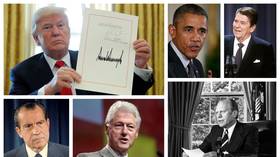End of an era: The 30-year legacy of Kazakh President Nazarbayev (PHOTOS)
The longest-serving Soviet-era leader, Kazakhstan’s President Nursultan Nazarbayev, has stepped down, leaving behind a three-decade-long era that has shaped the country into what it is now.
Nazarbayev held the presidential post since 1990 after serving as prime minister in the Soviet Republic of Kazakhstan. This makes him the longest-serving post-Soviet head of state, and until recently, the only one who hadn’t changed since the USSR broke up.
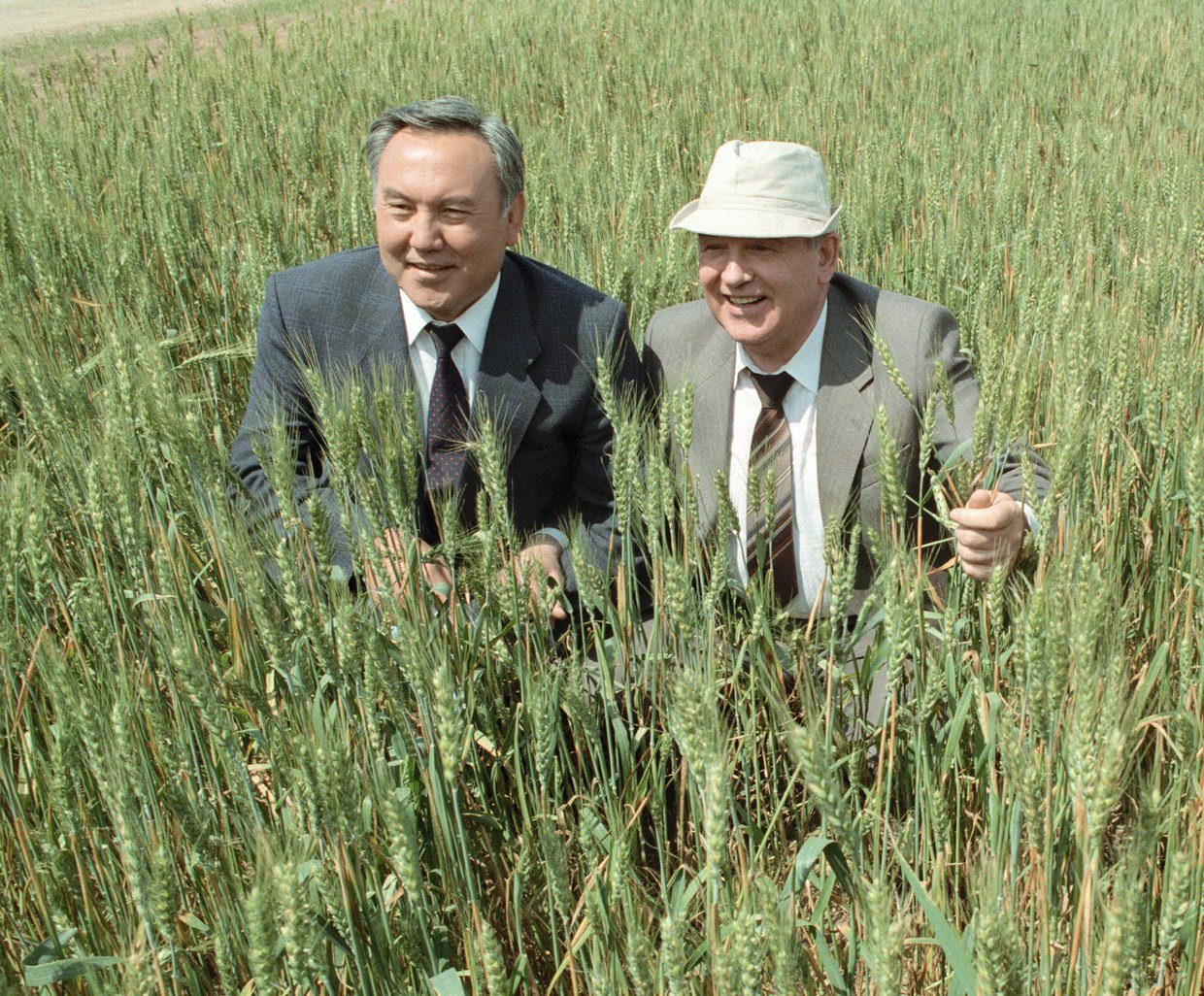
A fierce opponent of the Soviet breakup, he never signed the Belavezha Accords which ended the Soviet Union and created a successor entity, the Commonwealth of Independent States (CIS). This drive for unity later resulted in the Eurasian Economic Union.
Also on rt.com Kazakh president Nursultan Nazarbayev, a key Russian ally, resigns after almost 30 years in powerNazarbayev is widely acknowledged as the engineer of his country’s economic success. Kazakhstan was one of the most-developed Soviet republics, and the newly-acquired independence allowed Nazarbayev to propel it even farther ahead of his Central Asian neighbors.
In the early years, after the fall of the Soviet Union, he started bringing in Western energy companies like Chevron to develop Kazakh oil and gas deposits – all the while maintaining goodwill with Russia's leaders.
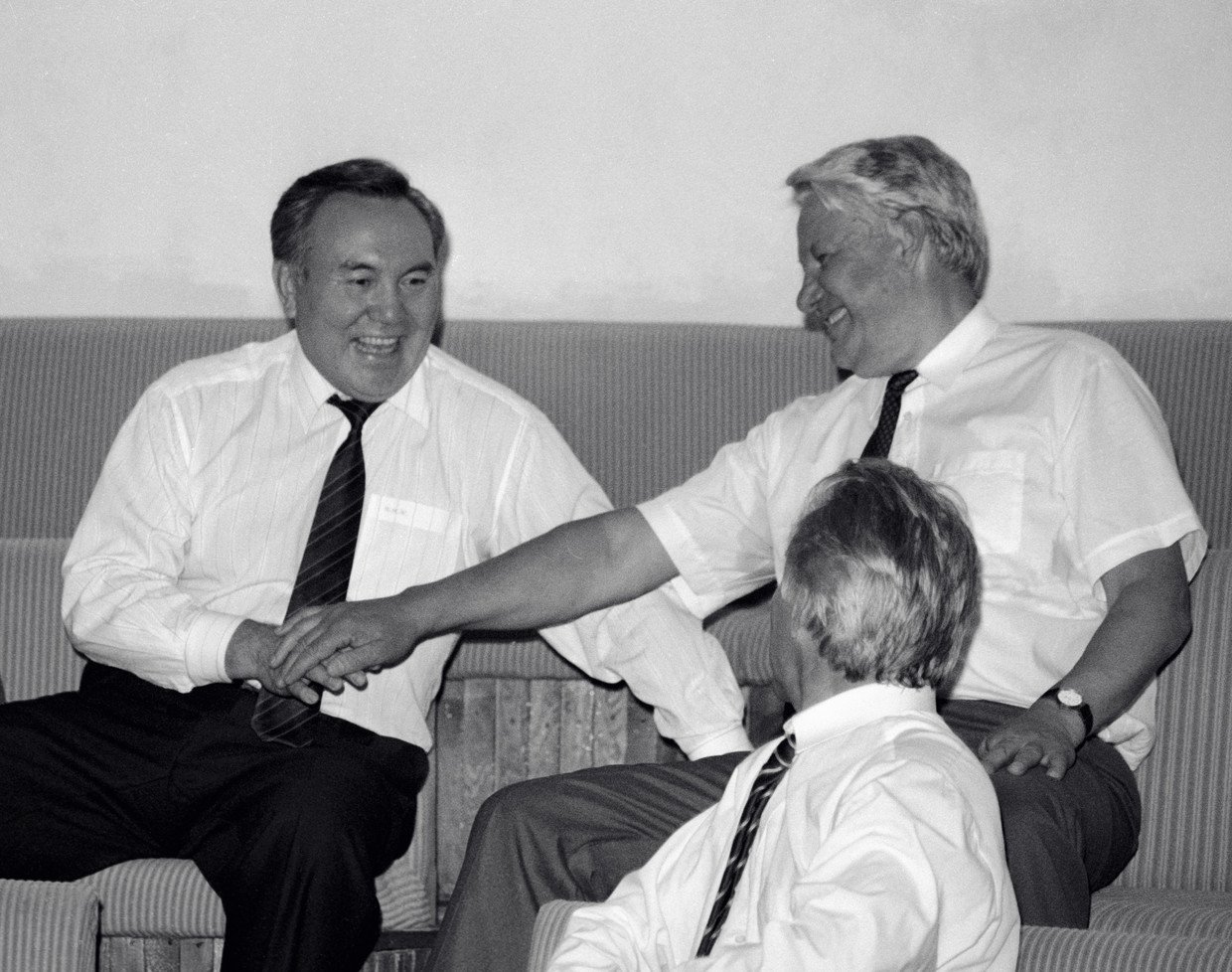
Introducing and setting in motion a series of development strategy plans, Nazarbayev saw Kazakhstan climb steadily in the World Bank’s ‘doing business ranking,’ where it currently holds the 35th spot (as opposed to 51st at the inception of its independence).
The mission statement of Nazarbayev’s Nur Otan party – essentially an extension of his will – includes a “multi-vectored” foreign policy. He managed to maintain relations with powers in the West who have repeatedly decried him as a dictator while at the same time praising to his anti-corruption efforts and his regional and historic allies.
The Nur Otan party is allied to both United Russia, the ruling party of Russia, and the Chinese Communist Party.
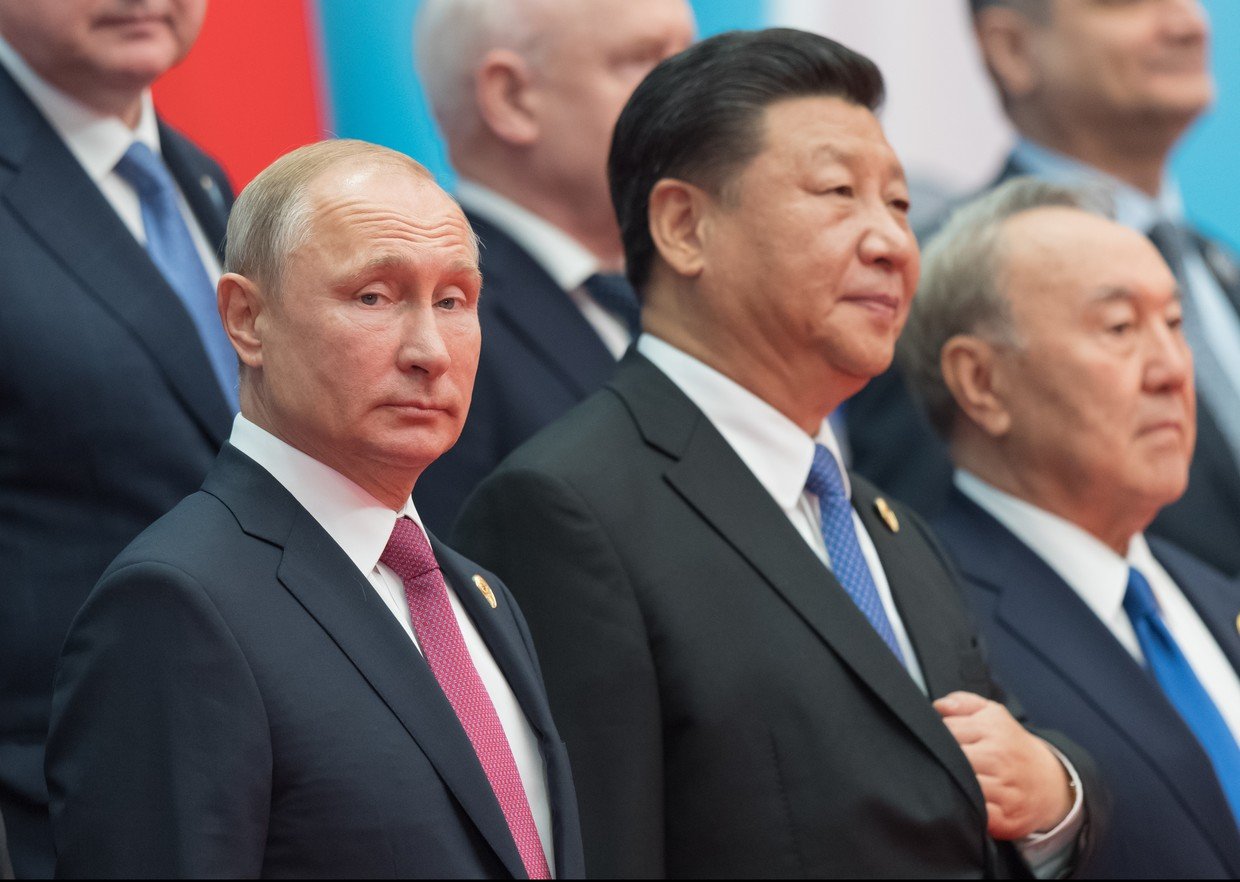
Nazarbayev also was behind the inception of the Eurasian Economic Union – a vital trade alliance between Russia, Kazakhstan and Belarus, later joined by Armenia and Kyrgyzstan. On top of that, convenient geography has allowed Kazakhstan to become an important leg on China’s developing Belt and Road trade route, promising enormous profit to the Central Asian nation.
Kazakhstan plays a key role in the Syrian peace process, providing the Astana process platform for key players Russia, Turkey and Iran’s stabilization efforts.
Also on rt.com Turkey calls for joint control with Russia & Iran over US troop pullout from SyriaStill, Kazakhstan remained relatively off the radar for most of the West until, that is, Sacha Baron Cohen’s infamous portrayal of Borat Sagdiyev, a fictional ‘Kazakh’ journalist on a state mission in the US.
Initially seen as insulting by a lot of Kazakhstan’s population and officials, the film ‘Borat! Cultural Learnings of America for Make Benefit Glorious Nation of Kazakhstan’ was later re-appraised, and Nazarbayev himself said it was a boon to the country’s visibility in the world.
“Is Borat Sagdiyev here? I would like to talk to him,” Nazarbayev said with a smile at a press conference where he was asked about the movie.
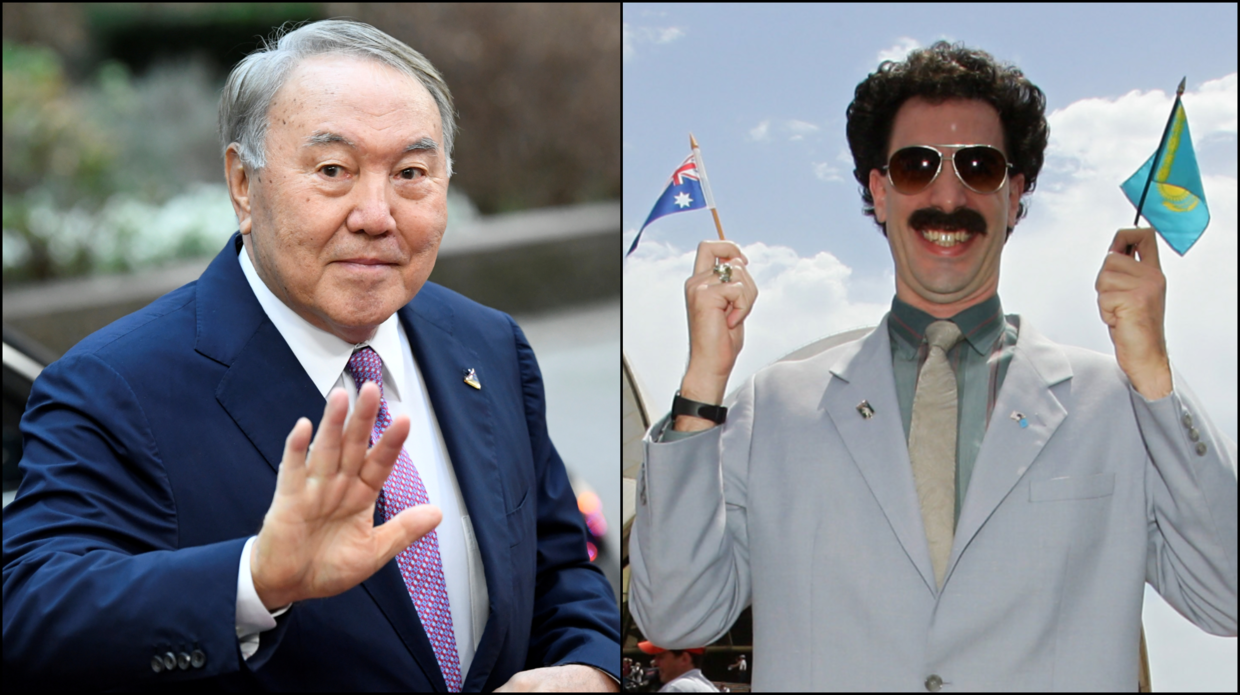
Having stepped down as Kazakhstan’s president, Nazarbayev remains a powerhouse in the country’s political arena, retaining his post as the head of the security council as well as the leader of Nur Otan, which holds a massive majority in parliament.
His acting successor, Senate Speaker Kassym-Jomart Tokayev, is a veteran of Nazarbayev’s administration, having held the posts of foreign minister and prime minister before.
“I’m still with you,” Nazarbayev said in his televised resignation speech.
Also on rt.com Russian ice hockey team ‘finds’ reason for Nursultan Nazarbayev resignationIf you like this story, share it with a friend!













